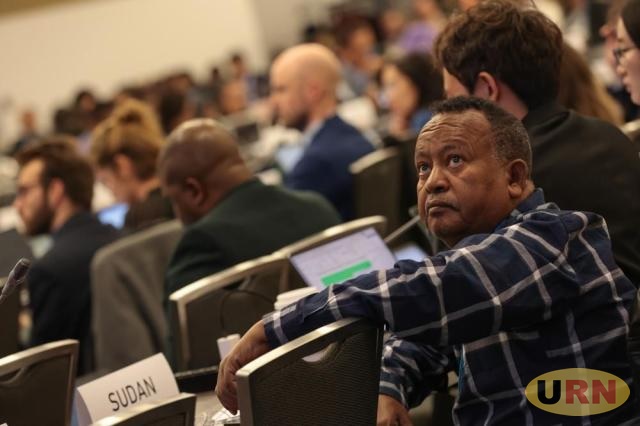
Ottawa, Canada | THE INDEPENDENT | Countries around the world made significant progress in drafting a global instrument to end the scourge of plastic pollution.
The negotiators from 175 countries including Uganda have been meeting in Ottawa Canada to put the final touches on the treaty that should be adopted before the end of this year. The negotiations should have ended on 29th April but they dragged on until 30 April.
United Nations Environment Programme Executive Director, Inger Anderson emerged from the negotiations saying the talks in Ottawa closed with a clear path to an ambitious plastic treaty.
Inger Anderson said we need an instrument to protect human ecosystems’ health while ensuring a just transition and space for the private sector to thrive in a new sustainable economy.
A statement from the fourth session of the Intergovernmental Negotiating Committee said the delegates in Ottawa agreed on and advanced the draft text of the instrument and agreement.
It is now clear that the draft agreement will finally be discussed and agreed to in November when countries meet in Busan in November 2024.
More than 2,500 delegates participated in INC-4, representing 170 Members and over 480 Observer organizations including – non-governmental organizations, intergovernmental organizations, and UN entities.
Intergovernmental Negotiating Committee (INC-4) marked the Committee’s largest and most inclusive gathering to date, with Observer participation increasing by almost fifty per cent.
Throughout INC-4, delegates worked on negotiating the Revised Draft Text of the international legally binding instrument.
The delegates discussed, among other things: emissions and releases; production; product design; waste management; problematic and avoidable plastics; financing, and a just transition.
“We came to Ottawa to advance the text and with the hope that Members would agree on the inter-sessional work required to make even greater progress ahead of INC-5. We leave Ottawa having achieved both goals and a clear path to landing an ambitious deal in Busan ahead of us,” said Inger Andersen.
“The work, however, is far from over. The plastic pollution crisis continues to engulf the world and we have just a few months left before the end-of-year deadline agreed upon in 2022. I urge members to show continued commitment and flexibility to achieve maximum ambition.” Said Anderson.
Steven Guilbeault, Canada’s Minister of Environment and Climate Change said Canada is committed to reaching a final agreement at INC-5 in the Republic of Korea before year end. He said they are no longer talking about “if” we can get there, but “how.”
“Together we can land one of the most significant environmental decisions since the Paris Agreement and the Kunming Montreal Global Biodiversity Framework,” he said.
Steven Guilbeault noted that they are doing everything they can to raise the international profile of the plastic pollution crisis so that the agreement gets the global attention it deserves to cross the finish line.
The Chair of the INC, Ambassador Luis Vayas said: “During these seven days of intense deliberations, you – the delegates – have managed to build on and advance the revised draft text of the instrument, providing streamlined text and entering textual negotiations on several elements,”
Ambassador Vayas said. “At the same time, we also leave with a much clearer picture of the work that remains to be done, if we are to deliver on the promise that Members have made through UNEA Resolution 5/14.”
“We are all united by our strong shared commitment to deliver an international legally binding instrument to end plastic pollution. It is this spirit of multilateralism which has guided our discussions here in Ottawa,” he added.
“We have found some common ground, and we are walking this path together until the end. I firmly believe that we can carry this same spirit forth to Busan to deliver on our mandate.”
Jyoti Mathur-Filipp, Executive Secretary of the INC Secretariat said it has been an ambitious timeline of just 18 months and four sessions to the negotiators to this point.
“And we are now firmly on the road to Busan. Compromise and commitment remains strong at this advanced stage of the negotiations,” said Mathur-Filipp.
She said member countries heading to Busan Korea in November should be ready to deliver on their mandate and agree on a final text of the instrument.
“This is more than a process – it is the fulfillment of your commitment to saving future generations from the global scourge of plastic pollution,” said Mathur-Filipp. Overall, the country delegations emphasized the role of individuals’ use of plastics to protect the environment from the risk of pollution.
The discussion on the Revised Draft Text considered issues regarding fishing gear, extended producer responsibility, implementation measures, including national (action/implementation) plans; primary plastic polymers, and polymers and chemicals of concern, financing, including the financial mechanism and resource mobilization, capacity building, technical assistance and technology transfer; and technology transfer.
United Nations Environment Assembly resolution 5/14 requested the Executive Director of UNEP to convene an intergovernmental negotiating committee, to begin its work during the second half of 2022, with the ambition of completing its work by the end of 2024.
The INC is tasked with developing an international legally binding instrument on plastic pollution, including in the marine environment, henceforth referred to as “the instrument”, which could include both binding and voluntary approaches, based on a comprehensive approach that addresses the full life cycle of plastic.
******
URN
 The Independent Uganda: You get the Truth we Pay the Price
The Independent Uganda: You get the Truth we Pay the Price



